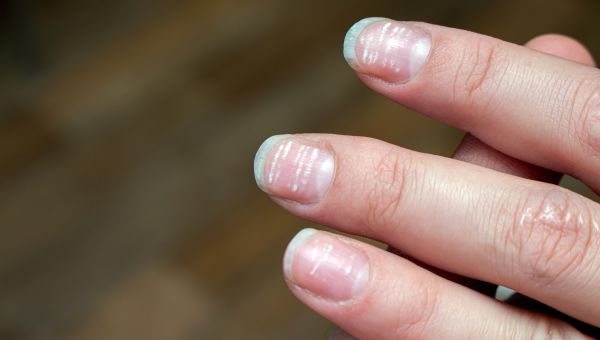6 times your fatigue is something more serious
We all feel tired from time to time, but if walking to the bathroom wipes you out, there may be an underlying issue.
Updated on March 29, 2023

Fatigue is a state of mental and physical exhaustion that can leave you feeling weak and deflated. Temporary fatigue typically has an identifiable cause. Once it's addressed, the fatigue will go away over time. Common causes include too little sleep, a lack of exercise, or poor diet.
If your lethargy doesn’t have an identifiable cause, lasts for a long time, or isn’t remedied by restful sleep, it may be a sign of an underlying health condition, like anemia, thyroid disorders, or diabetes.
Find out what might be the source of your long-term fatigue, and whether it’s something you should discuss with a healthcare provider (HCP).

Chronic fatigue syndrome
Chronic fatigue syndrome (CFS) is a disorder that triggers extreme mental and physical exhaustion that can’t be explained by a medical condition, doesn’t improve with sleep, and often limits your abilities to do everyday activities. Other symptoms include exhaustion that lasts 24 hours or longer after strenuous mental or physical effort, loss of memory and concentration, muscle pain, new or worsening headaches, and a sore throat.
About 1 percent of the global population, or 17 to 24 million people, are believed to have chronic fatigue syndrome, according to a 2020 review in the Journal of Translational Medicine. It most commonly affects people in their 40s and 50s; women who have a hard time managing stress may be at a higher risk.
The root causes of CFS are still unknown, which makes diagnosis and treatment difficult. The disorder is diagnosed using tests that rule out other conditions with similar symptoms, like sleep apnea, depression, and anemia. Up to 91 percent of people in the United States with CFS are undiagnosed or misdiagnosed with depression, according to research published in a 2021 issue of Mayo Clinic Proceedings.
Treatment can help reduce symptoms and may include prescription sleep aids and therapy. Changing the way you handle stress, improving your sleep habits, and monitoring your activity throughout the day can also be helpful.
Phone applications like Sharecare, available for iOS and Android can help you keep track of your sleep and daily physical activity. Simply download the app to automatically track your nightly rest and the number of steps you take throughout the day. You can manually log these numbers, too, if that’s what you prefer.
Regardless of what you think is causing your fatigue, any periods of excessive sleepiness should be discussed with your doctor.

Heart disease
Heart disease is the leading killer of American men and women, responsible for 1 in 5 U.S. deaths. While some people show no symptoms, common red flags for heart attacks, heart failure, and related conditions include:
- Chest pain and tightness
- Shortness of breath
- Discomfort in other areas of the body, such as the legs, neck, jaw, or abdomen
For many—especially women—the symptoms of heart disease can also include fatigue, lightheadedness, and a hard time completing everyday tasks. It occurs because the tissues in your body don't receive enough blood from the heart.
If you experience this exhaustion, especially with other heart disease symptoms, an HCP can use stress tests, chest X-rays, blood tests, and an electrocardiogram—which measures the heart’s electrical activity—to get to the root of the problem. You can reduce your risks with medication and lifestyle changes, like eating a healthy diet and getting enough exercise.

Diabetes
Diabetes is a condition characterized by high glucose, or blood sugar levels. It affects more than 30 million Americans, according to the National Institute of Diabetes and Digestive and Kidney Diseases. Obesity, inactivity, and a family history of the disease all increase your risk for type 2 diabetes. Excessive thirst, frequent urination, blurred vision, unexplained weight fluctuations, and fatigue are common signs.
Diabetes causes fatigue in a lot of ways. It can happen when sugar builds up in the blood; whatever the kidneys can’t break down leaves the body in your urine. Excess urination, in turn, can lead to dehydration, which may make you tired. Hypoglycemia and fluctuations in blood sugar can also cause fatigue. Our bodies use sugar for energy, but if the body can’t process these sugars, our energy levels can drop.
If you experience fatigue along with other symptoms of diabetes, make an appointment with an HCP, who will test your urine for elevated levels of glucose and may also prescribe medication and recommend lifestyle changes.

Anemia
Anemia happens when you don't have adequate red blood cells, which are responsible for carrying oxygen throughout your body. It can also occur if your body is too low in iron to produce enough hemoglobin, an iron-rich protein in your red blood cells; this is known as iron deficiency anemia. A third type of anemia, pernicious anemia, is the result of too little vitamin B12, and is common among older adults and vegetarians.
Milder cases of anemia may be symptomless, but the most common sign in severe cases is fatigue, likely caused by a lack of oxygen getting to your tissues. Other symptoms of anemia include shortness of breath, dizziness, or cold hands and feet. Iron deficiency anemia can also cause:
- Brittle nails
- Sore or smooth tongue
- Cravings for non-food items, like clay
- Pounding sensation in the ears
- Rapid heartbeat
To address your anemia, your HCP may suggest a healthy diet high in iron-rich foods like lentils, tofu, lean beef, and even dark chocolate. Other recommendations may include iron supplements and in rare cases, blood transfusions.
Treatment options for pernicious anemia include B12 shots, supplements, and a diet rich in B12. You might be advised to load your plate with foods like clams, trout, and salmon.

Thyroid disorders
Located in your neck, the thyroid gland secretes hormones that affect weight, energy levels, metabolism, and the function of nearly every organ. When your thyroid is not working properly, it can produce too much (hyperthyroidism) or too little (hypothyroidism) of those necessary hormones. Both hyperthyroidism and hypothyroidism may cause fatigue, as well as weight fluctuations, changes in menstruation, and muscle aches and weakness.
If you experience fatigue along with these other symptoms, and fear a thyroid disorder may be to blame, speak with an HCP. They can diagnose thyroid conditions using your medical history, physical exams, and tests, which measure the levels of thyroid-producing substances in the body.

Cancer
Fatigue is one of the most common signs of cancer, and one of the most common side effects of cancer treatment. The causes of cancer-related fatigue are somewhat unknown, but researchers believe it may be linked to toxic chemicals formed by the cancer cells in the body, or by protein and hormonal changes caused by abnormal cells.
Other general symptoms include weight loss, fever, and unexplained pain, though it can also cause localized symptoms since it affects each part of the body differently. For example, lung cancer may trigger a nagging cough, while blood in your stool or urine could signal colon or bladder cancer. If you're fatigued, look for these other red flags, which can indicate a larger problem.
Don’t wait to see an HCP if you suspect cancer is the underlying cause of your fatigue. Speedy treatment, which might include chemotherapy, radiation therapy, surgery, or any combination thereof, is important.
If you've been diagnosed already, your HCP can suggest ways to manage cancer-related fatigue. These might include an exercise regimen, short naps, a nighttime sleep schedule, a healthy diet plan, and yoga to relieve stress.
MedlinePlus. Fatigue. Page last updated April 24, 2021.
MedlinePlus. Chronic Fatigue Syndrome. Page last updated January 17, 2023.
Lim EJ, Ahn YC, et al. Systematic review and meta-analysis of the prevalence of chronic fatigue syndrome/myalgic encephalomyelitis (CFS/ME). J Transl Med. 2020;18(1):100.
Bateman L, Bested AC, et al. Myalgic Encephalomyelitis/Chronic Fatigue Syndrome: Essentials of Diagnosis and Management. Mayo Clin Proc. 2021 Nov;96(11):2861-2878.
Centers for Disease Control and Prevention. What is ME/CFS? Page last updated January 27, 2021.
Centers for Disease Control and Prevention. Possible Causes. Page last updated July 12, 2018.
Centers for Disease Control and Prevention. Symptoms and Diagnosis of ME/CFS. Page last updated July 12, 2018.
Centers for Disease Control and Prevention. Treatment of ME/CFS. Page last updated January 28, 2021.
Centers for Disease Control and Prevention. Heart Disease Facts. Page last updated October 14, 2022.
American Heart Association. Warning Signs of a Heart Attack. Page last updated December 5, 2022.
Centers for Disease Control and Prevention. Women and Heart Disease. Page last updated October 14, 2022.
National Heart, Lung, and Blood Institute. Heart Tests. Page last updated March 24, 2022.
Singh R, Teel C, Sabus C, et al. Fatigue in Type 2 Diabetes: Impact on Quality of Life and Predictors. PLoS One. 2016;11(11):e0165652.
American Heart Association. Symptoms, Diagnosis and Monitoring of Diabetes. Page last updated May 5, 2021.
National Heart, Lung, and Blood Institute. What Is Anemia? Page last updated March 24, 2022.
National Heart, Lung, and Blood Institute. Vitamin B12–Deficiency Anemia. Page last updated March 24, 2022.
American Society of Hemotology. Iron-Deficiency Anemia. Accessed on February 9, 2023.
MedlinePlus. Thyroid Diseases. Page last updated January 11, 2023.
MedlinePlus. Hyperthyroidism. Page last updated June 16, 2021.
MedlinePlus. Hypothyroidism. Page last updated June 16, 2021.
MedlinePlus. Thyroid Tests. Page last updated January 11, 2023.
American Cancer Society. Fatigue and Weakness. Accessed on February 9, 2023.
American Cancer Society. What is Fatigue or Weakness? Page last updated February 1, 2020.
American Cancer Society. Signs and Symptoms of Cancer. Page last updated November 6, 2020.
American Cancer Society. Treatment Types. Accessed on February 9, 2023.
American Cancer Society. Managing Fatigue or Weakness. Page last updated February 1, 2020.
More On


video

article

slideshow


video


video
